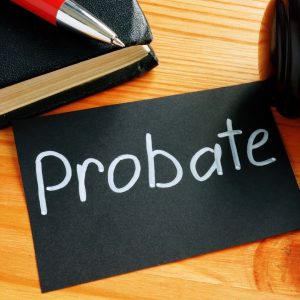Estate planning is essential for all elderly individuals. When a person dies without a trust or a will in place, the person’s remaining property and money will typically go to various individuals pursuant to California law. Therefore, when a person dies intestate, it is usually the state of California that will determine which person receives certain property, based upon the person’s relationship to the deceased individual. Some property, such as 401(k)s, life insurance proceeds, and bank accounts held jointly, will go to designated beneficiaries.
In most instances, a holder will designate a beneficiary when he or she opens one of these accounts, and the holder can change the designated beneficiary at any time. In cases where there are joint holders on a certain account, the account proceeds usually go to the surviving individual if one person dies. Moreover, since California is a community property state, certain assets – including residences – can go directly to a surviving spouse.
By having a will in place, a person can control the way in which assets and other property are distributed at the time of death. However, even when a will is in place at that time, it must still go through probate, which is a (sometimes lengthy) court process. During that process, the various assets in the decedent’s estate will go to designated beneficiaries. A person can also use a will as a means of making arrangements for the future care of minor children.
Setting up wills, estates, and trusts – including charitable trusts – can be a complicated process. An experienced California probate attorney can assist you with drafting these legal documents and can take care of all of your estate planning needs.
Giving Assets Away to Charity
Many individuals want to give a portion of their assets away to a specific charity when they pass away. An individual can accomplish this goal through two types of charitable trusts, including a charitable remainder trust or a charitable lead trust.
By setting up a charitable remainder trust, an individual must designate a trustee, such as a spouse or some other loved one, to manage the trust. The individual will then transfer assets and other property into a trust account. At that point, the individual can sell off the various trust assets and then reinvest the proceeds. When the person passes away, the remaining assets in the trust will go to a designated charitable entity.
When a person establishes a charitable lead trust, he or she must also designate a recipient. Upon creation of the trust, the individual’s assets, including any dividends accumulated, can go to benefit the designated charity. As part of a charitable lead trust, you could designate a certain percentage of your assets in the trust to go to an established charity for a specified number of years. Once that time period elapses, the remainder of the trust assets will go to certain designated beneficiaries.
A knowledgeable California estate planning and trust attorney can assist you with drafting estate documents and setting up a charitable trust for your assets.




